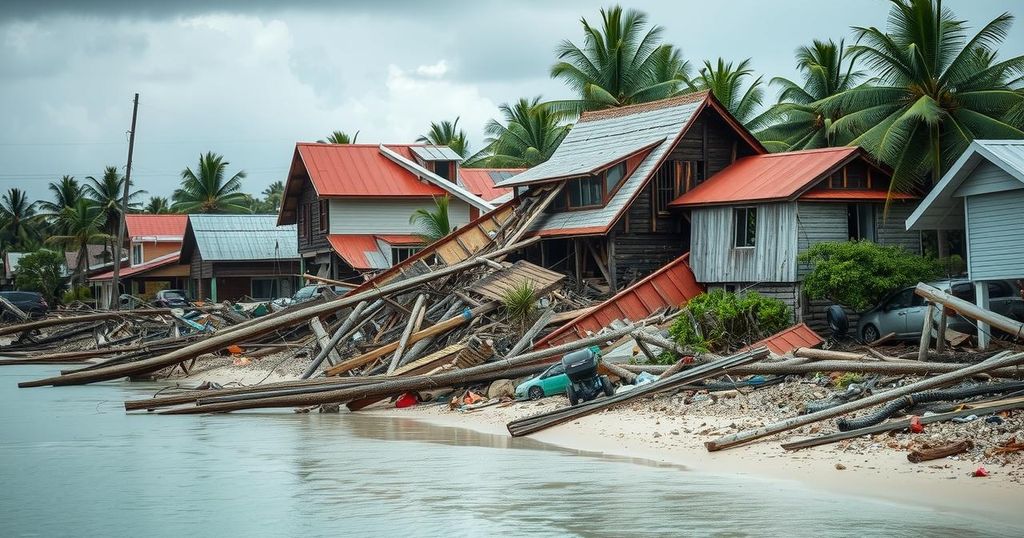Devastating Impact of Cyclone Chido on Mayotte
Cyclone Chido struck Mayotte on December 14, causing significant destruction. Reports indicate at least two fatalities due to collapsing structures in shantytowns, with concerns about a higher death toll. The storm’s intense winds resulted in widespread damage, particularly to vulnerable housing, as local officials maintain a red alert due to ongoing dangerous weather conditions.
Cyclone Chido has severely impacted the island of Mayotte, particularly the area of Grande-Terre, where the storm made landfall on the morning of December 14. As reported by the mayor of Mamoudzou, Ambdilwahedou Soumaila, at least two individuals perished in the shantytown of Kawéni due to collapsing furniture within their tin shelters. Despite these fatalities, local officials are concerned that the actual number of casualties could be significantly higher. “Many Mahorais have lost everything,” stated François-Xavier Bieuville, the Prefect of Mayotte, emphasizing the extensive devastation across the region.
The town experienced hazardous conditions with wind speeds exceeding 220 km/h, resulting in substantial destruction of property, particularly in the tin hut communities that constitute roughly one-third of the island’s housing. Reports indicate that neighborhoods were radically altered, with some regions reported to have been “swept away like crumbs”. The brunt of the storm caused immense infrastructural damage, including uprooted trees which hindered essential transportation routes. As rainfall and strong winds persist, authorities have maintained a red alert for the area.
While the immediate damage assessment continues, the full extent of injuries and fatalities remains undetermined, necessitating a thorough investigation as recovery efforts begin. The direct impact of Cyclone Chido on the already vulnerable population of Mayotte highlights the urgent requirement for enhanced disaster preparedness and support frameworks to mitigate such catastrophes in the future.
Mayotte, a French overseas department located in the Indian Ocean, is known for its economic challenges and is recognized as the poorest administrative region in France. The communities in Mayotte predominantly reside in informal housing structures, including tin huts, which are particularly susceptible to extreme weather events like cyclones. Natural disasters pose a consistent threat in this region due to its geographic vulnerabilities and socio-economic conditions. As climate change intensifies weather patterns, the frequency and severity of such cyclones are expected to escalate, raising concerns about disaster management and public safety.
In conclusion, Cyclone Chido has inflicted catastrophic damage on Mayotte, particularly affecting vulnerable populations living in precarious housing conditions. The loss of life and property emphasizes the need for comprehensive disaster response strategies and improved infrastructure to protect against future natural disasters. As the situation unfolds, local officials and humanitarian agencies are called upon to assess damage accurately, provide immediate assistance, and develop long-term recovery plans to rebuild affected communities.
Original Source: www.lemonde.fr




Post Comment